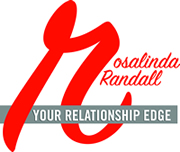Defining Metamours
In the complex and often nuanced world of polyamory, understanding the role of metamours can be a crucial aspect of navigating relationships.
A metamour is a term used to describe someone who is married or in a committed relationship with one’s partner’s spouse, partner, or significant other. This relationship dynamic can be particularly challenging for individuals involved in polyamorous arrangements, as it requires careful communication and boundary-setting to avoid misunderstandings and conflicts.
Metamours often find themselves caught between their loyalty to their own partner and their growing emotional connection with the other person’s partner. They may experience feelings of jealousy, guilt, or confusion, which can strain relationships within polyamorous triads or networks.
Effective communication is essential in building trust and fostering healthy relationships among metamours. This includes establishing clear boundaries, being transparent about intentions and desires, and seeking support from other trusted individuals within the relationship.
Ultimately, understanding the role of metamours can help polyamorous individuals navigate complex emotional dynamics and foster deeper connections with all parties involved in their network of relationships.
Impact on Family Relationships
The dynamics of non-monogamous relationships can be complex, involving multiple partners and varying degrees of intimacy. One important figure to consider in these arrangements is the metamour – an individual who has a romantic or sexual relationship with one’s partner. However, their role goes beyond being an outsider; they often play a significant part in the life of both the primary partner and the secondary partner, making them a critical component in navigating polyamorous relationships.
Challenges to Traditional Roles
Understanding Metamours: Navigating Complex Family Dynamics in Polyamory
In polyamorous relationships, metamours (spouses’ partners’) often face unique challenges when it comes to their role within the family unit. As they navigate complex webs of love, loyalty, and boundaries, it’s essential to acknowledge the impact on family relationships and traditional roles.
- Communication Breakdowns
- Lack of Clear Boundaries
- Polyamory Stigma
- Redefining Family Roles
As polyamorous families evolve, they must confront and re-evaluate traditional notions of family dynamics. Metamours may find themselves caught between their loyalty to their spouse and their growing bond with a partner outside the relationship. This can lead to misunderstandings, hurt feelings, and tension within the family unit.
A significant challenge faced by metamours is adapting to new family roles. As relationships become more fluid, traditional expectations of who belongs in which role begin to blur. It’s not uncommon for families to question their place in these shifting dynamics, leading to confusion and conflict.
Adjusting to New Information
Understanding metamours can be a significant aspect of navigating polyamorous relationships. A metamour is someone who has a romantic partner or is married to one’s own partner, often creating complex dynamics within a triad or larger relationship system.

When adjusting to new information about metamours, it’s essential to consider their role and how they may impact your own relationships. For instance, knowing that your partner’s spouse (metamour) has certain preferences or boundaries can help you navigate conflicts or intimacy with them more effectively.
However, it’s also crucial to recognize that every individual within a polyamorous relationship is unique, bringing their own set of needs, desires, and expectations. Understanding these nuances is vital in fostering healthy relationships and communication among all parties involved.
In many cases, metamours can play a significant role in facilitating connections between partners or helping to resolve conflicts. A supportive and open relationship with the spouse can strengthen bonds within the triad, while a lack of understanding can lead to tension and misunderstandings.
Maintenance and Management
Maintenance and management are essential components of successful relationships, particularly within non-traditional partnerships such as polyamorous households. While often overlooked in favor of more glamorous aspects of relationships, maintenance and management involve the behind-the-scenes work required to keep a household running smoothly. This includes tasks such as communication with partners, coordination of schedules and boundaries, division of labor and resources, conflict resolution, and emotional support. In the context of polyamory, understanding maintenance and management is crucial for navigating complex webs of relationships and creating a harmonious environment for all involved.
Navigating Power Dynamics
Maintenance and management are crucial components in any relationship, but when polyamory involves multiple partners, it can be particularly complex to navigate.
In polyamorous relationships, metas or metamours (short for meta-partner or second-in-group) play a significant role. A meta is an individual who is not directly involved in the intimate relationship between two people, but has a close connection with at least one of the partners. This dynamic can be especially intricate when it comes to power dynamics, as metas may occupy a position of influence over their own partner without having direct control over the other partner.
Metas often navigate a delicate balance between being supportive and non-intrusive, while also respecting the boundaries set by their partner. Effective communication is vital in these situations, as both partners must be on the same page regarding roles, expectations, and any concerns or needs that may arise. Power dynamics can manifest in various ways, including emotional labor, decision-making influence, and even physical proximity.
Metas may also have differing levels of autonomy, with some having more say in daily decisions than others. This disparity can lead to feelings of resentment or frustration if not addressed through open discussion. Additionally, the presence of a meta can sometimes create tension between partners, particularly if there are differences in opinions about the relationship or its dynamics.
Successfully navigating power dynamics within a polyamorous system requires ongoing effort and dedication from all parties involved. By fostering a culture of respect, empathy, and transparency, individuals can work together to establish clear expectations and boundaries, ultimately leading to healthier and more fulfilling relationships for everyone concerned.
Emotional Reactions and Attachments
Metamours can evoke strong emotional reactions, particularly for those in polyamorous relationships or who have experienced infidelity in their primary relationship.
When a partner begins an emotional or physical connection with someone outside of their relationship, it can create feelings of jealousy, insecurity, and mistrust among the primary partners. This is often referred to as being “metamour-jealous” or experiencing emotions associated with a rival suitor.

In some cases, metamours may also experience emotional attachments to their partner’s new significant other, which can manifest as sympathy or support for the newcomer, even if it means developing feelings of rivalry or discomfort towards them. These complex emotions can lead to conflicts and tension within the primary relationship.

Additionally, the role of metamours can be more than just a romantic or physical connection; they may also become emotional confidants, providing a sense of security and comfort for both partners in the relationship. This can further blur the lines between platonic and romantic relationships, adding to the complexity of navigating these dynamics.
It’s essential to acknowledge that emotions associated with metamours are highly individualized and can vary greatly from person to person. Understanding and communication are key to managing these feelings and building stronger, more resilient relationships.
Therapeutic Considerations
Metamours are a significant aspect of polyamorous relationships, often sparking curiosity and concern among individuals involved in these dynamic partnerships. In monogamous societies, the concept of “in-laws” or “ex-partners’ partners” is well-defined, but in polyamorous contexts, this figure is frequently left undefined or relegated to secondary status. However, as polyamory continues to gain recognition and acceptance, it’s essential to explore the nuances of metamours’ roles and emotional experiences within these networks.
Seeking Support and Guidance
In polyamorous relationships, the concept of metamours can be complex and emotionally charged for all parties involved. A metamour is someone who is married or in a long-term relationship with one’s partner, but not directly connected to them romantically. Understanding the role of metamours can help individuals navigate these intricate dynamics and provide guidance on seeking support when needed.
- Metamours often occupy a unique position within the polyamorous community, as they are frequently caught between their loyalty to their partner and their growing connection to the other person in the relationship. This can lead to feelings of guilt, anxiety, or insecurity for all parties involved.
- Communicating openly and honestly with one’s partner and metamours is essential for building trust and understanding within a polyamorous network. This can involve discussing boundaries, needs, and concerns, as well as actively listening to each other’s perspectives and feelings.
Support and guidance can be obtained from various sources, including:
- Therapy or counseling: Working with a professional therapist or counselor who has experience in polyamory can provide individuals with a safe space to explore their emotions and develop healthy communication strategies.
- Support groups: Joining a support group specifically for polyamorists or metamours can connect individuals with others who are navigating similar challenges, providing valuable insights and guidance from those who understand the complexities of these relationships.
Additionally, seeking support from trusted friends, family members, or mentors who have experience in polyamory can be invaluable. By building a network of supportive relationships, individuals can better navigate the intricacies of metamouring and cultivate a stronger sense of community within their polyamorous connections.

Buy double cock rings for extra sensation at Peaches and Screams Shop wrist restraints and ankle cuffs for a secure fit at Peaches and Screams Buy cock straps and harnesses for better control and pleasure at Peaches and Screams Ignite your fantasies with outfits from Peaches and Screams Buy Herrco products for high-quality pleasure at Peaches and Screams Shop anal lubricants at Peaches and Screams Shop Women’s Sexy Witch Erotic Roleplay Costumes for playful and mysterious outfits at Peaches and Screams
Dejour Magazine D Magazine Salon The First Come First Served K Aesthetics Studio My Better Love
- Sculptra Surrey – Collagen Stimulation Therapy Near Kew, Surrey - January 1, 2025
- Understanding Metamours And Their Role In Polyamory - December 18, 2024
- What Is In A Lip Filler - December 12, 2024
